Twenty-first Century Biblical Commentary: The Gospel of John: Believe and Live
This book will provide an in-depth and comprehensive look at where Bible prophecy, both fulfilled and yet-to-come, fits into God’s plan for believers and the nation of Israel. This book will take you through a detailed look at the difficult subject of prophecy using the incredible wealth of research and study provided by Dr. Edward Hindson, Dr. Mal Couch, Dr. Elmer Towns, and Dr. Robert Lightner. Their ultimate goal is to teach and encourage believers to know their Bibles in a more clear way. A series of study questions at the end of each chapter is designed to enable the reader to study the details of the book, which they can use on their own or in a group setting.
The message of the book of John is underlined by the use of two key words, believe, used ninety-eight times and life, used thirty-six times. In The Gospel of John, Elmer Towns places a particular emphasis on these words. The Apostle John wrote with a twofold purpose—as noted in 20:31—to communicate Christ through His miracles and teachings so men might, first, believe that Jesus was indeed who He said He was, the Son of God; and second, they might have eternal life because of their belief.
theWord Features:
- Verse popups
- Verse synchronization
- Fully searchable text
- Footnotes
- Pages links
- Easy navigation of topics via topics tree display.
Note: This is a Hybrid module and does not display commentary under Bible text as a Commentary module would.
Courageous Faith: Life Lessons from Old Testament Heroes
Obstacles* Battles* Weakness* Fears*
Learn to face life’s greatest challenges with courageous faith in the power of God.
Faith is the key that unlocks the power of God in our lives. It enables us to live by His promises and experience His blessings in our personal lives. In COURAGEOUS FAITH, Ed Hindson encourages us to live beyond the normal limits of life and experience the unlimited power of God on a regular basis. based on the lives of the Hebrews heroes of the Old testament, this exciting book challenges us to overcome our barriers, conquer our fears, realize our goals, and start over when we fail. Relive the greatest moments of faith and triumph in the lives of the men of God who dared to believe His promises in their lives.
This practical and powerful study is based on the lives of the Hebrew heroes who dared to believe that God keeps His promises
ABRAHAM The Journey of Faith SAMSON Making Them Your Strengths
JACOB Hanging Tough in the Tough Times BOAZ Especially those Who are Different
JOSEPH Starting Over When it All Falls Apart DAVID Confidence in the Face of Danger
MOSES Overcoming Your Past JONATHAN Value of True Loyalty
JOSHUA Conquering The Opposition DANIEL Developing Spiritual Determination
GIDEON Overcoming Your Fears NEHEMIAH Leaving a Legacy You Can Be proud Of
JEPHTHAH Even When it Costs You
theWord Features:
- Verse popups (Nehemiah 9:1)
- Fully searchable text
- Easy navigation of topics via topics tree display.
The New International Greek Testament Commentary: The Gospel of Luke
(These are resources that are being developed. There is no release date. Pricing is subject to change.)
The Gospel of Luke was written, says its author, as an historical account of the ministry of Jesus. Not only would it serve as the basis for a sound faith on the part of professing Christians, but it would also claim a place for Christianity in history. Christ’s ministry, as Luke shows, is realized prophecy; it is that time during which God’s promise of salvation was fulfilled. His teachings, healing, and acts of compassion are all part of the good news. In Luke’s Gospel, Christ’s message of salvation is directed to the weak, poor, and needy, with an emphasis on the importance of self-denial and of whole-hearted discipleship. Thus, while Luke is the most conscious historian of the Gospel writers, his history is a vehicle of theological interpretation in which the significance of Jesus is expressed.
In this commentary I. Howard Marshall calls attention to the theological message of Luke the Evangelist. His primary purpose is to exegete the text as it was written by Luke, so that the distinctiveness of Luke’s Gospel may be seen.
Basing his commentary on the third edition of The Greek New Testament, Dr. Marshall also refers to many variant readings which are significant in this study. He provides fairly full information on the meanings of the Greek words used by Luke and shows which words and constructions occur frequently and are therefore characteristic of his style. It is by this meticulous analysis of the Greek that Luke’s theological intentions can be objectively determined.
The New International Greek Testament Commentary: The Gospel of Matthew
(These are resources that are being developed. There is no release date. Pricing is subject to change.)
Having devoted the past ten years of his life to research for this major new work, John Nolland gives us a commentary on the Gospel of Matthew that engages with a notable range of Matthean scholarship and offers fresh interpretations of the dominant Gospel in the history of the church.
Without neglecting the Gospel’s sources or historical background, Nolland places his central focus on the content and method of Matthew’s story. His work explores Matthew’s narrative technique and the inner logic of the unfolding text, giving full weight to the Jewish character of the book and its differences from Mark’s presentation of parallel material. While finding it unlikely that the apostle Matthew himself composed the book, Nolland does argue that Matthew’s Gospel reflects the historical ministry of Jesus with considerable accuracy, and he brings to the table new evidence for an early date of composition.
Including accurate translations based on the latest Greek text, detailed verse-by-verse comments, thorough bibliographies for each section, and an array of insightful critical approaches, Nolland’s Gospel of Matthew will stimulate students, preachers, and scholars seeking to understand more fully Matthew’s presentation of the gospel narrative.
The New International Greek Testament Commentary: The Epistle to the Hebrews
(These are resources that are being developed. There is no release date. Pricing is subject to change.)
The New International Greek Testament Commentary: The Epistles to the Thessalonians
(These are resources that are being developed. There is no release date. Pricing is subject to change.)
The letters of Paul to the newly founded Christian community at Thessalonica hold a special place within the Christian tradition as possibly the earliest extant Christian writings. They are also of special interest not only for their theological value but for their sociological context. Among the communities established by Paul, the church at Thessalonica appears to have been the only one to have suffered serious external oppression. These two important epistles, then, speak uniquely to contemporary Christians living in a society often ideologically, if not politically, opposed to Christian faith.
In this innovative commentary Charles A. Wanamaker incorporates what may be called a social science approach to the study of 1 and 2 Thessalonians, taking into full account the social context that gave rise to Paul’s correspondence. While Wanamaker in no way ignores traditional historical-critical, linguistic, literary, and theological approaches to writing a commentary — in fact, at several points he makes a significant contribution to the questions raised by traditional exegesis — at the same time he goes beyond previous commentaries on the Thessalonian correspondence by taking seriously the social dimensions both of Christianity at Thessalonica and of the texts of 1 and 2 Thessalonians themselves. In blending traditional exegetical methods with this newer approach, Wanamaker seeks to understand Pauline Christianity at Thessalonica as a socio-religious movement in the first-century Greco-Roman world and attempts to grasp the social character and functions of Paul’s letters within this context.
The New International Greek Testament Commentary: The Book of Revelation
(These are resources that are being developed. There is no release date. Pricing is subject to change.)
The New International Greek Testament Commentary: The Epistle of James
(These are resources that are being developed. There is no release date. Pricing is subject to change.)
Peter David’s study on the Epistle of James is a contribution to The New International Greek Testament Commentary, a series based on the UBS Greek New Testament, which attempts to provide thorough exegesis of the text that is sensitive to theological themes as well as to the details of the historical, linguistic, and textual context.
The New International Greek Testament Commentary: The Gospel of Mark
(These are resources that are being developed. There is no release date. Pricing is subject to change.)
Drawing on many years of Marcan studies, world-class scholar R. T. France has produced an exegetical commentary on the Greek text of Mark that does what the best of recent Greek commentaries have done but in France’s own inimitable, reader-friendly way.
This work is a commentary on Mark itself, not a commentary on commentaries of Mark. It deals immediately and directly with matters that France himself regards as important. Working from his own translation of the Greek text and culling from helpful research into the world of first-century Palestine, France provides an extensive introduction to Mark’s Gospel, followed by insightful section and verse commentary.
France sees the structure of Mark’s Gospel as an effective “drama in three acts.” Act 1 takes up Jesus’ public ministry in Galilee. Act 2 covers Jesus’ journey to Jerusalem with his disciples. Act 3 focuses on Jesus’ public ministry in Jerusalem, including his confrontation with the Jewish leaders, his explanatory discourse on the future, and his passion, death, and resurrection. France carefully unpacks for modern readers the two central themes of this powerful narrative of Jesus’ life — the nature of Christ and the role of discipleship.
Supported by careful argumentation and impressive in its sensitivity to Mark’s structure, context, and use of the Old Testament, France’s study of the second Gospel is without peer.
The New International Greek Testament Commentary: The Pastoral Epistles
(These are resources that are being developed. There is no release date. Pricing is subject to change.)
This is a thorough, full- scale English commentary on the Greek text of 1 and 2 Timothy and Titus. While author George W. Knight gives careful attention to the comments of previous interpreters of the text, both ancient and modern, his emphasis is on exegesis of the Greek text itself and on the flow of the argument in each of these three epistles.
Besides providing a detailed look at the meanings and interrelationships of the Greek words as they appear in each context, Knight’s commentary includes an introduction that treats at length the question of authorship (he argues for Pauline authorship and proposes, on the basis of stylistic features, that Luke might have been the amanuensis for the Pastoral Epistles), the historical background of these letters, and the personalities and circumstances of the recipients.
Knight also provides two special excursuses: the first gathers together the information in the Pastorals and elsewhere in the New Testament on early church offices and leaders; the other excursus examines the motivations for conduct in Titus 2:1-10 with a view to their applicability to present-day situations.
The New International Greek Testament Commentary: The Epistle to the Galatians
(These are resources that are being developed. There is no release date. Pricing is subject to change.)
The New International Greek Testament Commentary: The Epistles to the Colossians and to Philemon
(These are resources that are being developed. There is no release date. Pricing is subject to change.)
Series: The New International Greek Testament Commentary (NIGTC)
Paul’s Epistle to the Colossians merits detailed study for at least two reasons. First, it provides an unexpectedly interesting window into the character of Christianity in Asia Minor in the second half of the first century. With the information it gives about the religious tensions within which emergent Christianity was caught up, not least those between Christianity and diaspora Judaism, we begin to gain more insight into the influences and factors that shaped the transition from apostolic to subapostolic Christianity in the region. Second, Colossians represents a crucial stage in the development of Pauline theology itself. Whether it was written at the end of Paul’s life or soon after his death, it indicates how Pauline theology retained its own vital character and did not die with Paul.
In this volume in the celebrated New International Greek Testament Commentary, James D. G. Dunn, author of numerous well-received works on the historical origin and theological interpretation of the New Testament, provides detailed expositions of the text of Paul’s letters to the Colossians and to Philemon.
Dunn examines each of these letters within the context of the Jewish and Hellenistic cultures in the first century, and discusses the place of Colossians and Philemon in the relationship between the Pauline mission and the early churches that received these letters. Particular stress is also placed on the role of faith in Jesus Christ within and over against Judaism and on the counsel of these two important letters with regard to the shaping of human relationships in the community of faith.
The New International Greek Testament Commentary: The Second Epistle to the Corinthians
(These are resources that are being developed. There is no release date. Pricing is subject to change.)
Series: The New International Greek Testament Commentary (NIGTC)
The reputation of the NIGTC series is so outstanding that the appearance of each new volume is noteworthy. This book on 2 Corinthians is no exception. Master New Testament exegete Murray J. Harris has produced a superb commentary that analyzes the Greek text verse by verse against the backdrop of Paul’s tumultuous relations with his converts at Corinth.
Believing that Scripture cannot be understood theologically unless it has first been understood grammatically, Harris provides a careful, thoroughgoing reading of the text of 2 Corinthians. He gives special attention to matters of translation, making regular references not only to the standard modern English translations but also to influential older versions such as The Twentieth Century New Testament and those by Weymouth, Moffatt, and Goodspeed. His close attention to matters of textual criticism and grammar leads to discussions of the theology of 2 Corinthians that show the relevance of Paul’s teaching to Christian living and church ministry.
Other notable features of the book include a comprehensive introduction in which all the relevant literary and historical issues are discussed, an expanded paraphrase of the letter that conveniently shows Harris’s decisions on exegetical issues and indicates the flow of Paul’s argument, a chronology of the relations of Paul, Timothy, and Titus with the Corinthian church, and an excursus on Paul’s “affliction in Asia” (1:8-11) and its influence on his outlook and theology.
The New International Greek Testament Commentary: The First Epistle to the Corinthians
(These are resources that are being developed. There is no release date. Pricing is subject to change.)
Series: The New International Greek Testament Commentary (NIGTC)
This superb volume in the New International Greek Testament Commentary series provides the most detailed, definitive, and distinctive commentary on 1 Corinthians available in English to date.
One of the world’s most respected Christian theologians, Anthony Thiselton here provides in- depth discussion of the language of 1 Corinthians, presents his own careful translation of the Greek, traces the main issues of interpretation from the church fathers to the present, and highlights topics of theological, ethical, and sociohistorical interest today, including ethics and “rights,” marriage, divorce and remarriage, “headship,” gender, prophecy, and many others.
No other commentary on 1 Corinthians embodies the wealth and depth of detail presented in Thiselton’s work, which takes account of nearly all scholarly research on 1 Corinthians and incorporates substantial bibliographies throughout. In his commentary Thiselton indeed addresses virtually every question that thoughtful, serious readers — scholars, students, pastors, teachers — may wish to ask of or about the text of 1 Corinthians. His work truly offers a fresh, comprehensive, and original contribution to our understanding of this major epistle and its contemporary relevance.
An Interpretive Lexicon of New Testament Greek (Analysis of Prepositions, Adverbs, Particles, Relative Pronouns and Conjunctions)
Book Summary
This interpretive lexicon is a Greek language resource that is intended to help students and translators to easily and quickly determine the range of translation possibilities for a wide variety of the smallest and most difficult words in the Greek New Testament to translate
About the Book
Save considerable time in translating and exegesis of the Greek New Testament text.
This Lexicon has a very specific and important purpose: to make the process of New Testament interpretation easier and more accurate by providing a comprehensive yet concise interpretation of Greek words that determine logical relationships between statements or clauses.
These words (prepositions, adverbs, particles, relative pronouns, conjunctions and other connectors) are essential to revealing and supporting the main ideas in the text and are especially useful for interpreting logical arguments, such as those found in the epistles.
While not exhaustive, this Interpretive Lexicon lists the vast majority of Greek connecting words, especially those that are notorious for being some of the most difficult words to translate.
Features include:
- Concise definitions for quick analysis.
- Examples of where the word is found in Scripture.
- Page references to several major lexical resources for further translation options and nuances.
- Interpretation of the broader categories of each word (for example: locative (in, among, on), means-end (with, by), grounds (because, on account of), temporal (while, at), and so on.
The interpretive feature of the book–evaluating the word’s function in discourse–is tremendously helpful for the exegetical process, allowing the translator to closely follow the logical flow of the text with greater efficiency. This Interpretive Lexicon is a valuable handbook for student, pastor, and scholar alike.
theWord Features:
- Verse popups
- Abbreviation popups
- Many internal links
- Word lookup via right-click-menu
- Fully searchable text
- Footnotes
- Page numbers noted for BDAG (00 and 79)
- Easy navigation of topics via topics tree display.
- Special Text Colors
- Normal: Text
- Hyperlink: Luke 20:21
- Greek: χρησις
- Hebrew: א
- Page Number: [pg21>
Greek Grammar Beyond the Basics
The first textbook that systematically links syntax and exegesis of the New Testament—perfect for students of Greek who are “second-year” or at an intermediate level.
For seminary students, the goal of studying Greek grammar in the first place is to ultimately get beyond the grammar itself and understand it well enough to use it in the accurate exegesis of biblical texts.
Greek Grammar Beyond the Basics—the most up-to-date Greek grammar available—integrates the technical requirements for proper Greek interpretation with the actual interests and needs of Bible students. It explores numerous syntactical categories, some of which have not previously been dealt with in print, and has a number of distinguishing features, including:
Exegetically significant illustrations, discussed in depth.
Semantic situations—or contexts for simple semantics—are developed and analyzed.
Expanded definitions and numerous examples and syntactical categories.
Grammatical statistics listed at the beginning of major sections.
Scores of charts, tables, and graphs.
Sound exegesis requires that the exegete consider grammar within a larger framework that includes context, lexeme, and other linguistic features. This textbook faithfully equips intermediate Greek students with the skills they need to do exegesis of biblical texts in a way that is faithful to their intended meaning.
The expanded edition contains a subject index, a Greek word index, and page numbers in the Syntax Summary section.
About the Author
Daniel B. Wallace (PhD, Dallas Theological Seminary) is professor of New Testament at Dallas Theological Seminary. He is a noted textual critic, serving as head of the Center for the Study of New Testament Manuscripts, and is author of Greek Grammar beyond the Basics, Basics of New Testament Syntax, and (with Grant Edwards) of A Workbook for New Testament Syntax.
theWord Features:
- Verse popups
- Fully searchable text
- Footnotes
- Page Number: [pg21>
- Page links in index
- Easy navigation of topics via topics tree display.
- Greek words index
- Subject index
- Verse page index
- Syntax Summaries
- Cheat Sheet
- Special text colors
- Normal: Text
- Hyperlink: Luke 20:21
- Greek: χρησις
World English Bible (Strong’s Numbers, Glossary & Apocrypha)
Description:
Why was the World English Bible translated?
There are already many good translations of the Holy Bible into contemporary English. Unfortunately, almost all of them are restricted by copyright and copyright holder policy. This restricts publication and republication of God’s Word in many ways, such as in downloadable files on the Internet, use of extensive quotations in books, etc. The World English Bible was commissioned by God in response to prayer about this subject.
Because the World English Bible is in the Public Domain (not copyrighted), it can be freely copied, distributed, and redistributed without any payment of royalties. You don’t even have to ask permission to do so. You may publish the whole World English Bible in book form, bind it in leather and sell it. You may incorporate it into your Bible study software. You may make and distribute audio recordings of it. You may broadcast it. All you have to do is maintain the integrity of God’s Word before God, and reserve the name “World English Bible” for faithful copies of this translation.
How was the World English Bible translated?
The World English Bible is an update of the American Standard Version (ASV) of the Holy Bible, published in 1901. A custom computer program updated the archaic words and word forms to contemporary equivalents, and then a team of volunteers proofread and updated the grammar. The New Testament was updated to conform to the Majority Text reconstruction of the original Greek manuscripts, thus taking advantage of the superior access to manuscripts that we have now compared to when the original ASV was translated.
What is different about the World English Bible?
The style of the World English Bible, while fairly literally translated, is in informal, spoken English. The World English Bible is designed to sound good and be accurate when read aloud. It is not formal in its language, just as the original Greek of the New Testament was not formal. The WEB uses contractions rather freely.
The World English Bible doesn’t capitalize pronouns pertaining to God. The original manuscripts made no such distinction. Hebrew has no such thing as upper and lower case, and the original Greek manuscripts were written in all upper case letters. Attempting to add in such a distinction raises some difficulties in translating dual-meaning Scriptures such as the coronation psalms.
The World English Bible main edition translates God’s Proper Name in the Old Testament as “Yahweh.” The Messianic Edition and the British Edition of the World English Bible translates the same name as “LORD” (all capital letters), or when used with “Lord” (mixed case, translated from “Adonai”,) GOD. There are solid translational arguments for both traditions.
Because World English Bible uses the Majority Text as the basis for the New Testament, you may notice the following differences in comparing the WEB to other translations:
The order of Matthew 23:13 and 14 is reversed in some translations.
Luke 17:36 and Acts 15:34, which are not found in the majority of the Greek Manuscripts (and are relegated to footnotes in the WEB) may be included in some other translations.
Romans 14:24-26 in the WEB may appear as Romans 16:25-27 in other translations.
1 John 5:7-8 contains an addition in some translations, including the KJV. Erasmus admitted adding this text to his published Greek New Testament, even though he could at first find no Greek manuscript support for it, because he was being pressured by men to do so, and because he didn’t see any doctrinal harm in it. Lots of things not written by John in this letter are true, but we decline to add them to what the Holy Spirit inspired through John.
With all of the above and some other places where lack of clarity in the original manuscripts has led to multiple possible readings, significant variants are listed in footnotes. The reading that in our prayerful judgment is best is in the main text. Overall, the World English Bible doesn’t differ very much from several other good contemporary English translations of the Holy Bible. The message of Salvation through Jesus Christ is still the same. The point of this translation was not to be very different (except for legal status), but to update the ASV for readability while retaining or improving the accuracy of that well-respected translation and retaining the public domain status of the ASV.
theWord Version includes Strong Numbers (Not on every word but many if not most.), Glossary Dictionary and Apocrypha
theWord Features
Bible
- Strong’s Numbers
- Headings
- Verse popups
- Cross References
- Fully searchable text
- Footnote(s)
- Easy navigation of topics via Bible tree or Verse Reference Entry
- Special Text Colors
- Normal: Text
- Greek: λογος
- Hebrew: א
Glossary
- Verse popups
- Fully searchable text
- Easy navigation of topics via topics tree display.
- Special Text Colors
- Normal: Text
- Hyperlink: Link | Jn 3:36
Apocrypha
Books included: Tobit, Judith, Esther (Greek*), Wisdom of Solomon, Sirach, Baruch, 1 Maccabees, 2 Maccabees, 1 Esdras, Prayer of Manasses, Psalms 151, 3 Maccabees, 2 Esdras, 4 Maccabees, Daniel (Greek*)
*Greek means they included portions translated from the Greek in addition to the Hebrew.
- Verse popups
- Fully searchable text
- Footnote(s)
- Easy navigation of topics via topics tree display.
- Special Text Colors
- Normal: Text
- Hyperlink: Link | Jn 3:36
- Hebrew: א

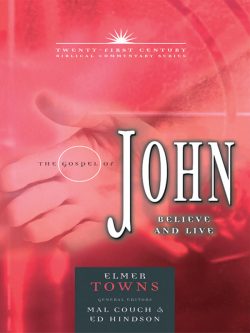
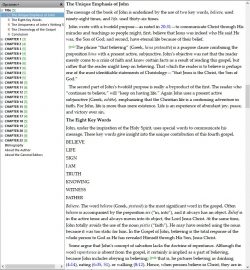
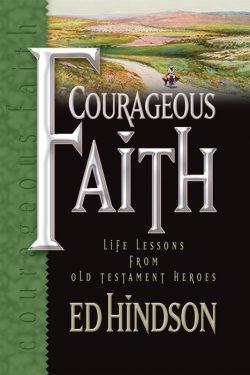
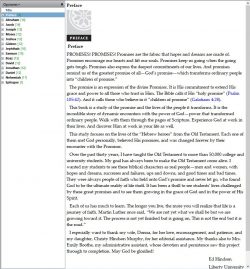
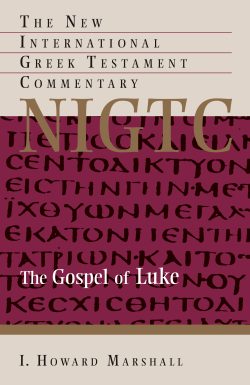
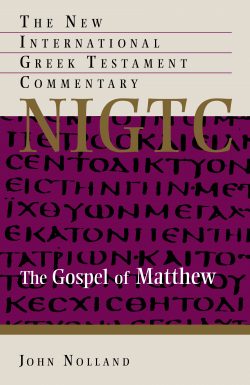
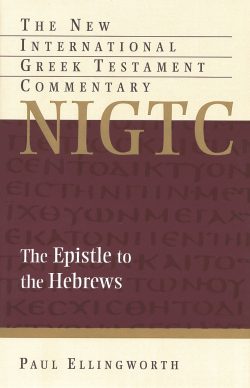
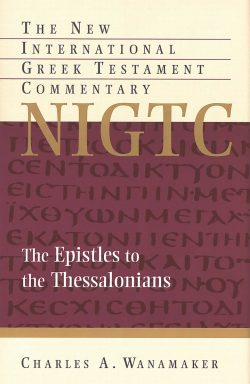
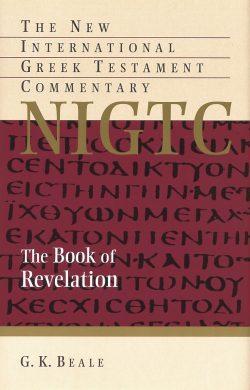
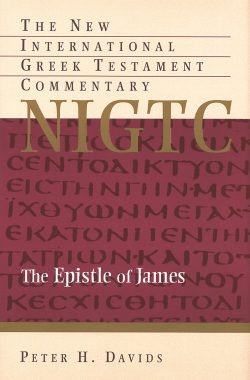
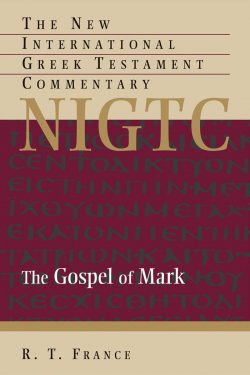
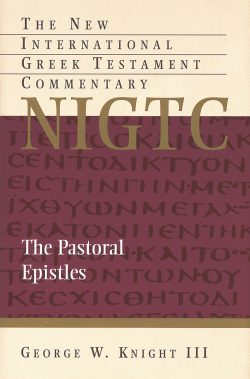
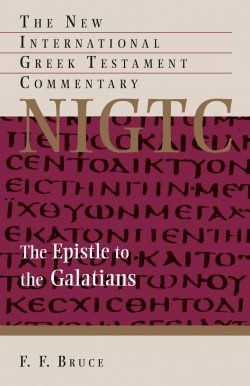
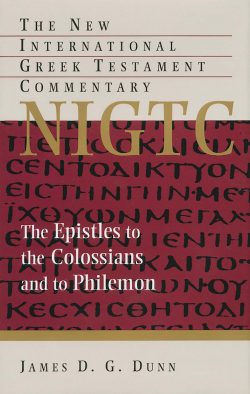
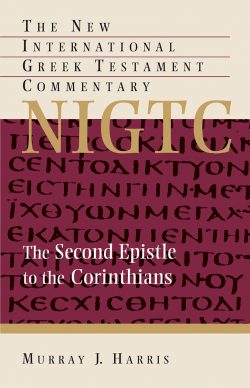
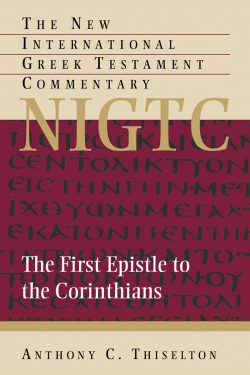
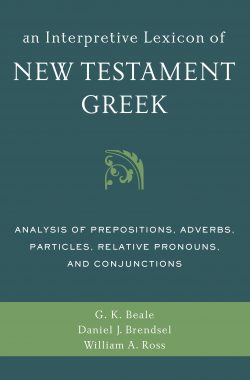

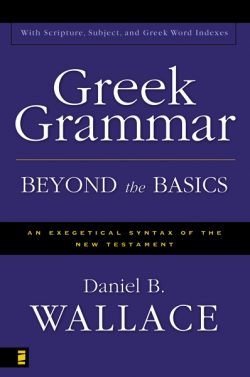

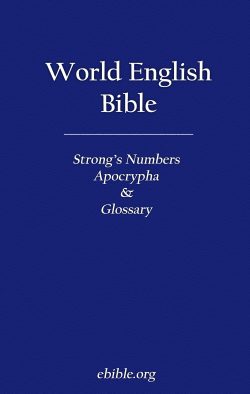
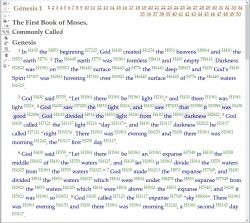
Twenty-first Century Biblical Commentary: The Books of 1 & 2 Timothy, Titus, and Philemon: Goals to Godliness
WHAT ARE YOU DOING TODAY TO BE MORE LIKE CHRIST?
The key to achieving success in anything is to set reasonable goals and strive to meet them. The difficulty in striving to be like Christ is that we never ca be like Him-not perfectly, not until we are made new in His image in heaven. Yet, the fact that we cannot achieve perfection should never top us from anything good. So, the real question is, how is good is good enough? Any Christian who thinks he or she has nothing more to achieve in godliness and personal holiness is utterly deceived.
These books (especially 1 and 2 Timothy and Titus) are often referred to as the “Pastoral Epistles.” The name is certainly appropriate since these books provide the the most thorough statement of church government found anywhere in the New Testament . Paul’s combination of personal advice and apostolic injunction has set the pattern for church government for the past twenty-one centuries.
Yes these books are so much more than official letters on church policy. American scholar Homer Kent Jr. made a career out of studying these important letters in detail. He summed up his opinion of them, saying, “Not only is the content rich in doctrinal and practical discussion, so pertinent to the Christian life, but the historical, geographical, and personal notices make the letters colorful and intensely human.”
Charles Ray’s commentary is unique in that he emphasizes the personal, practical results Paul wanted to encourage every Christian to strive for in their daily walk. Here the reader will be challenged to see the goals Paul had in mind, and to incorporate them in his or her own life.
theWord Features:
Note: This is a Hybrid module and does not display commentary under Bible text as a Commentary module would.